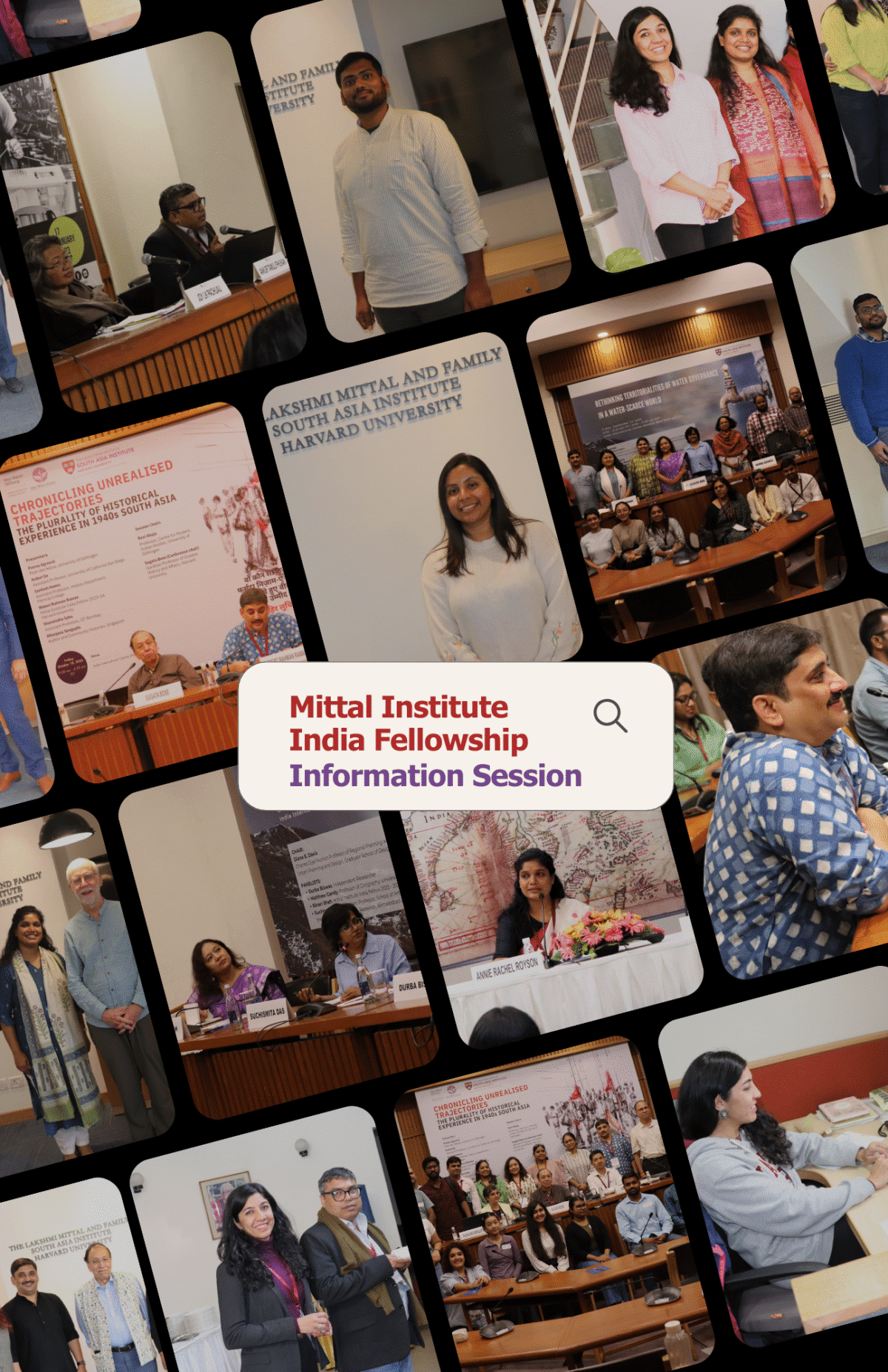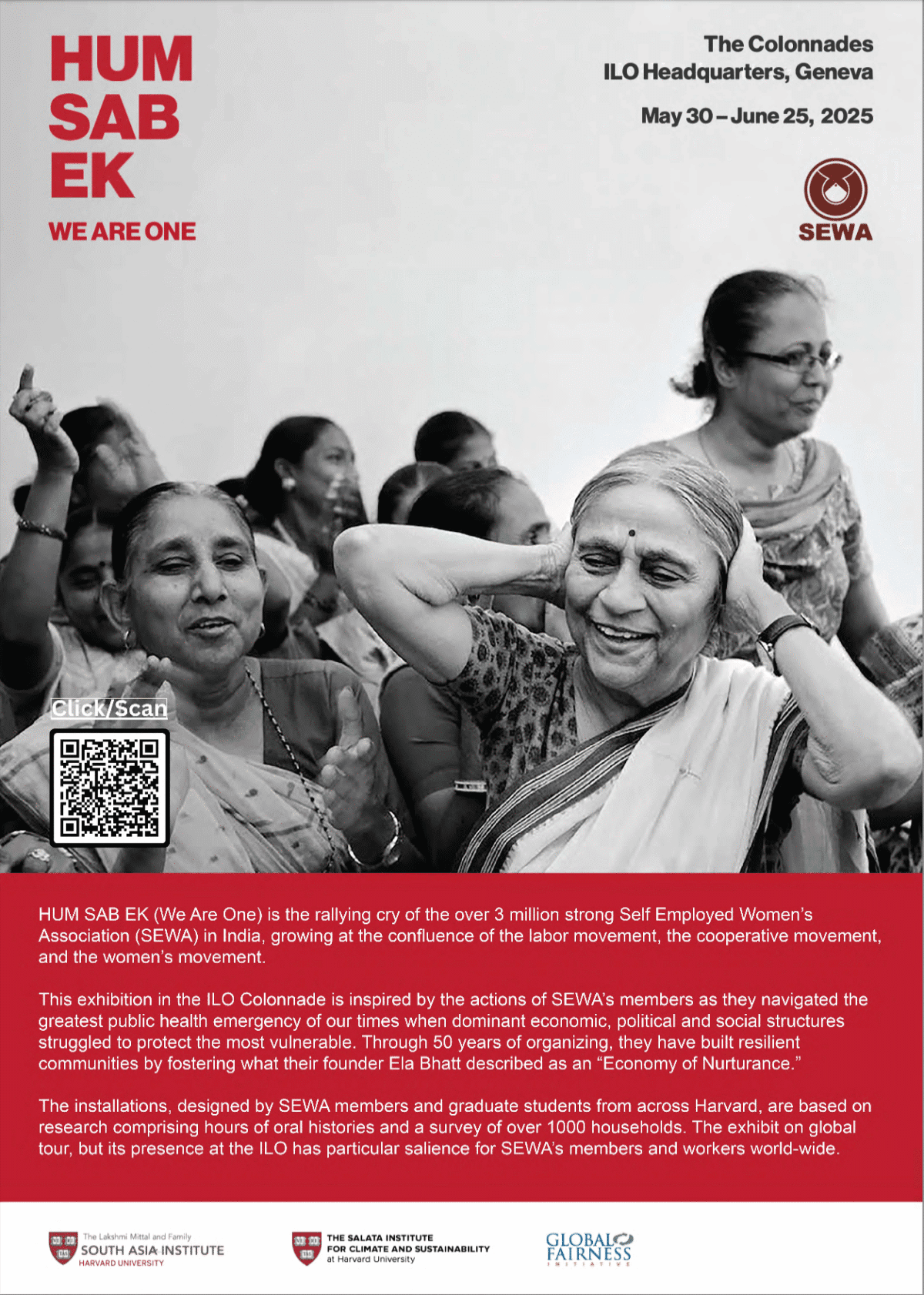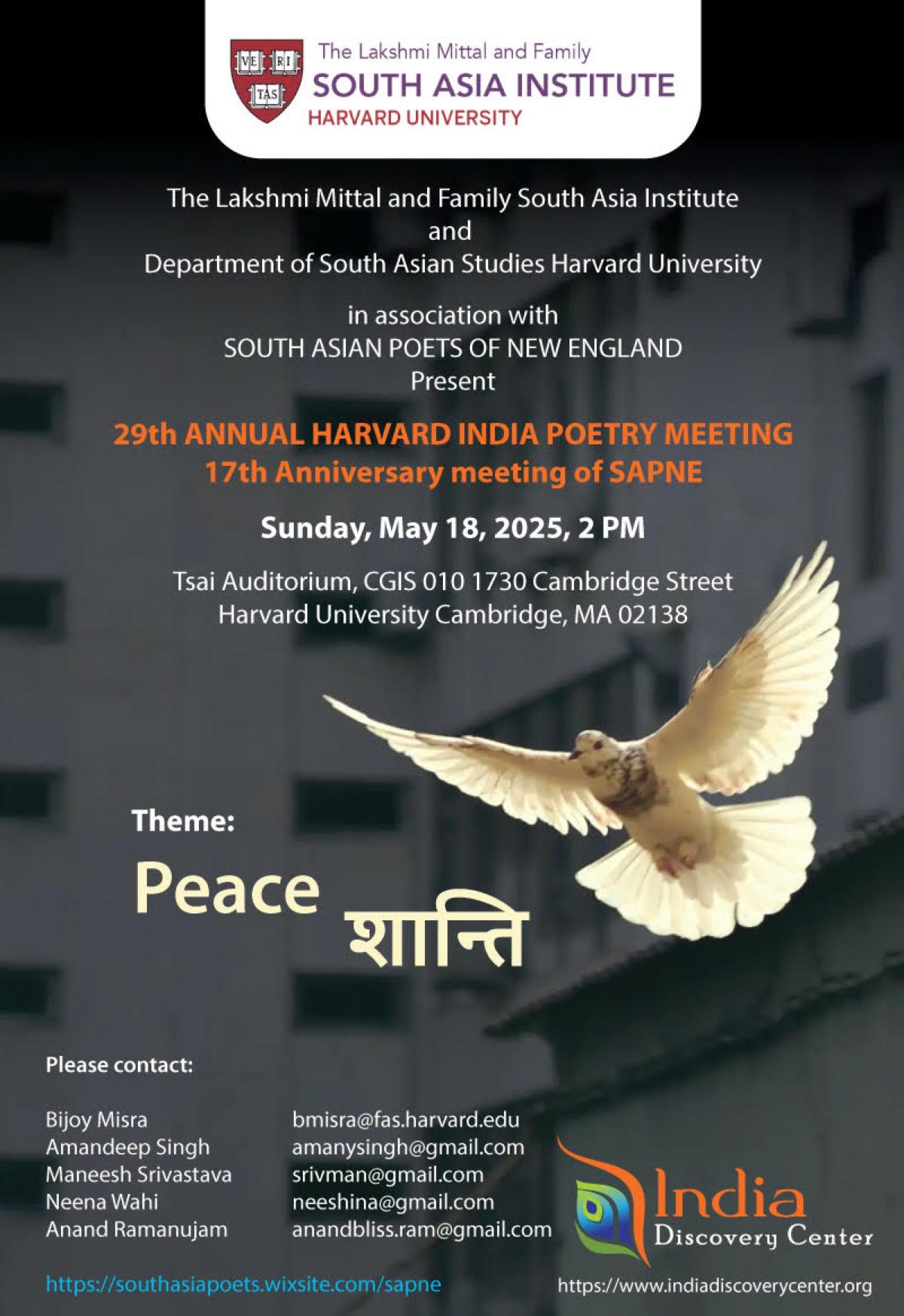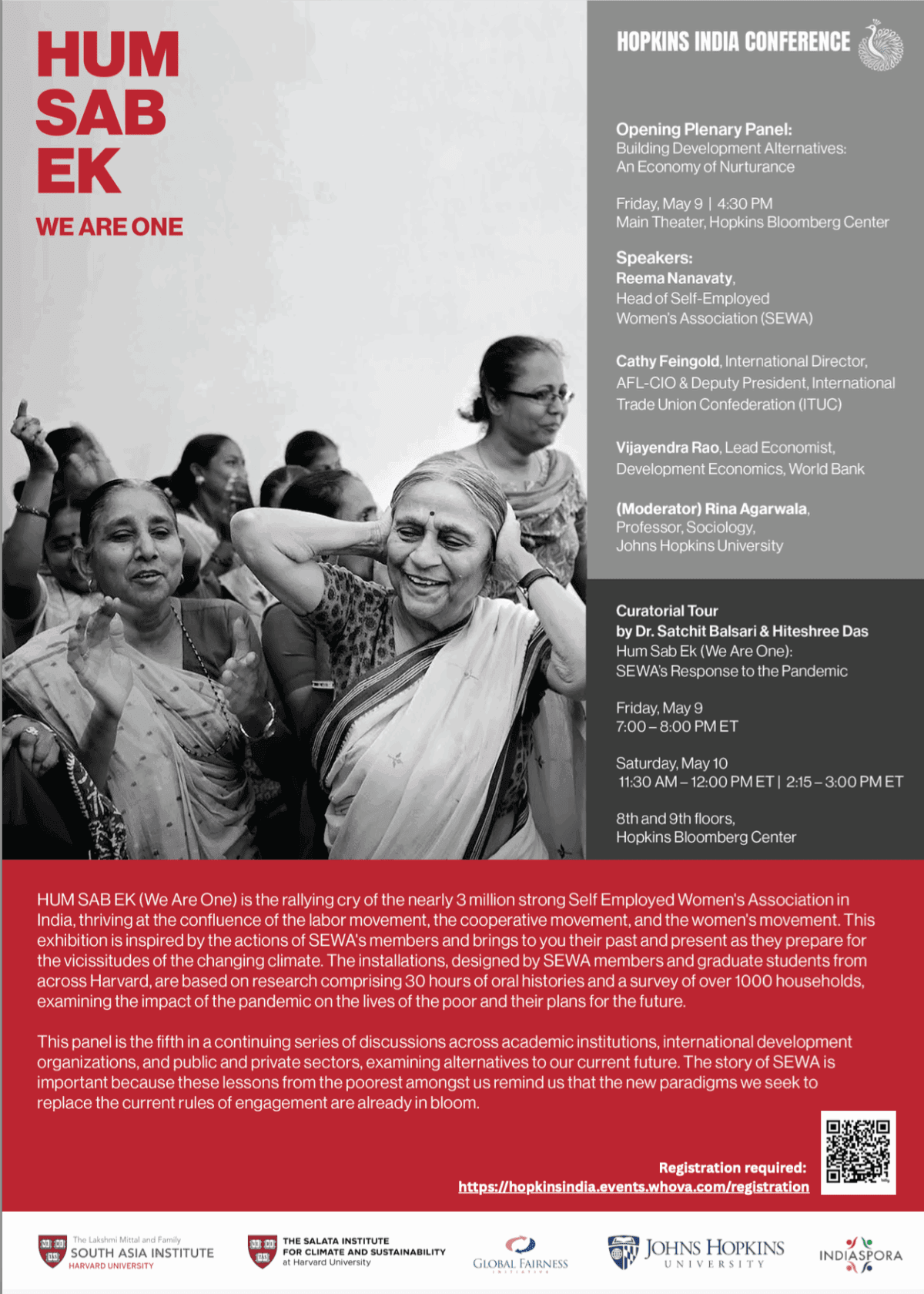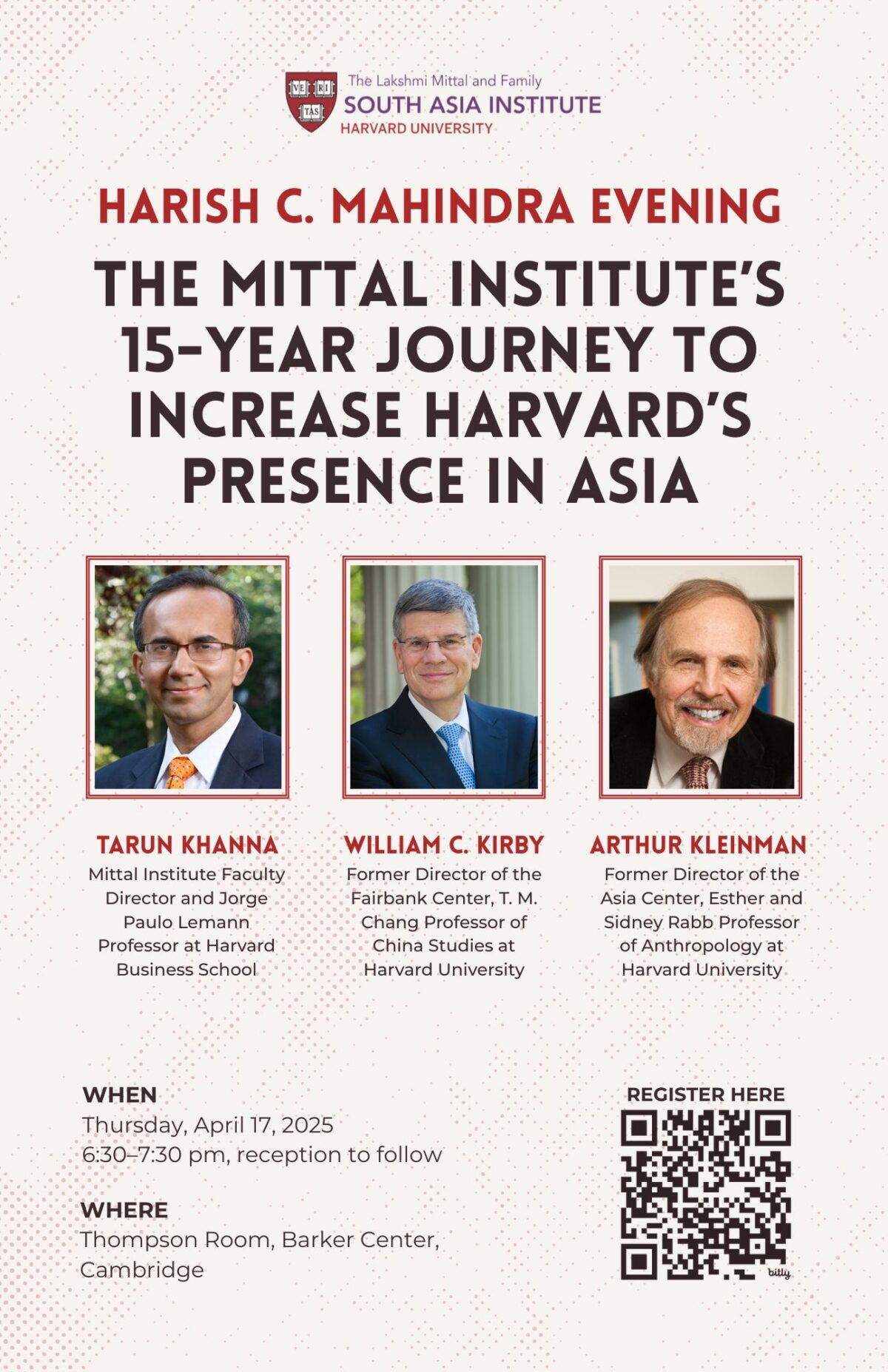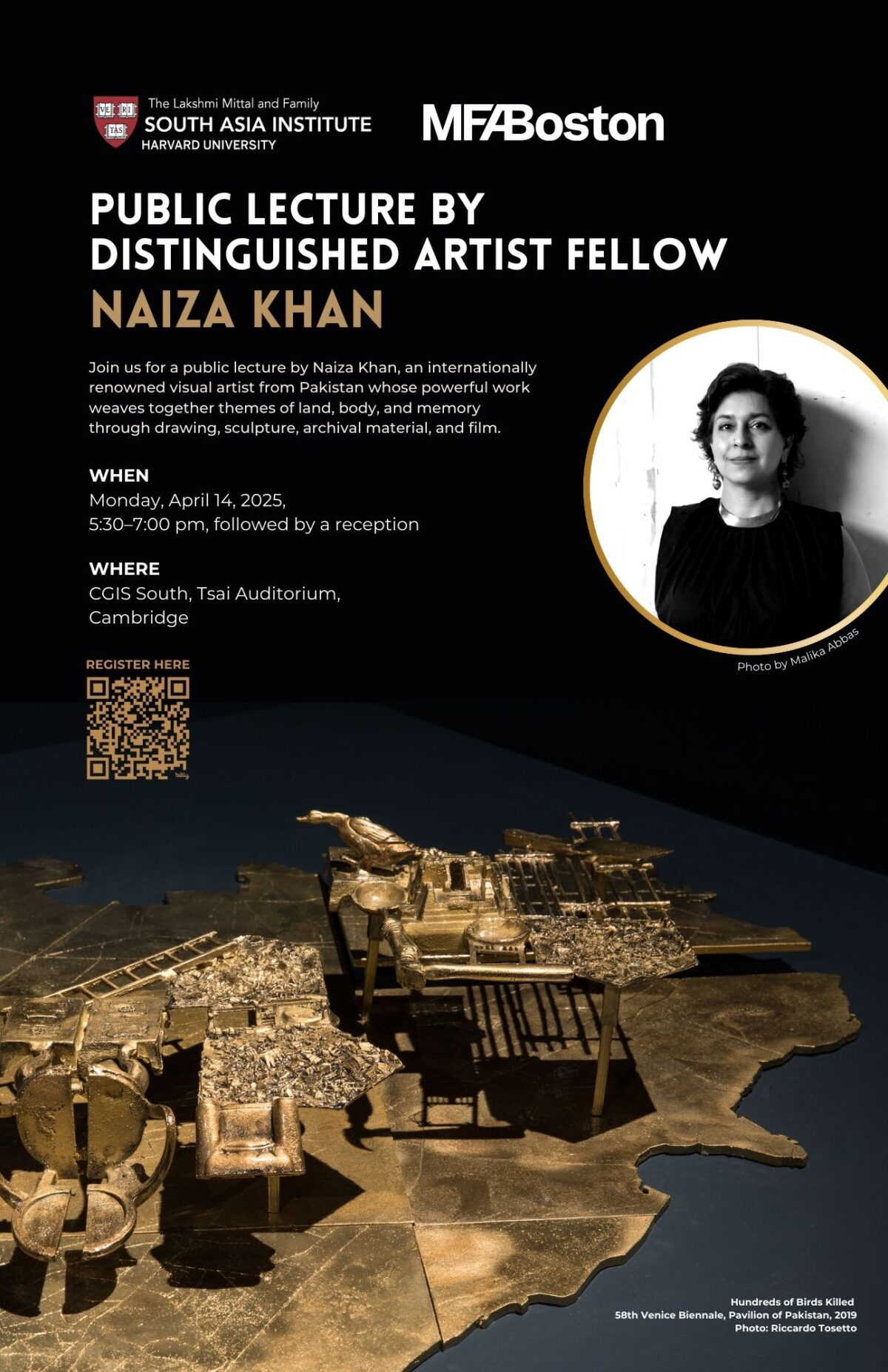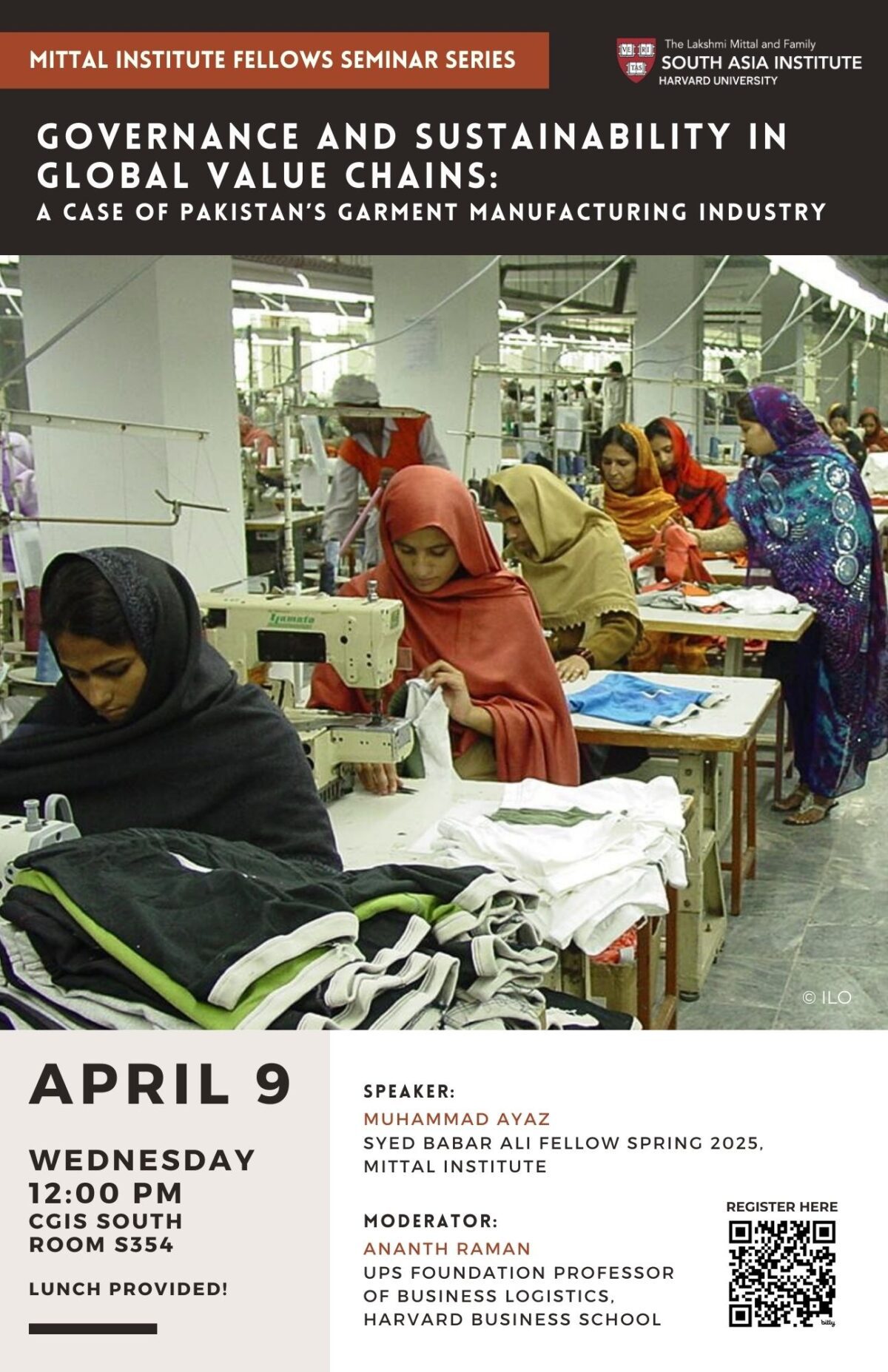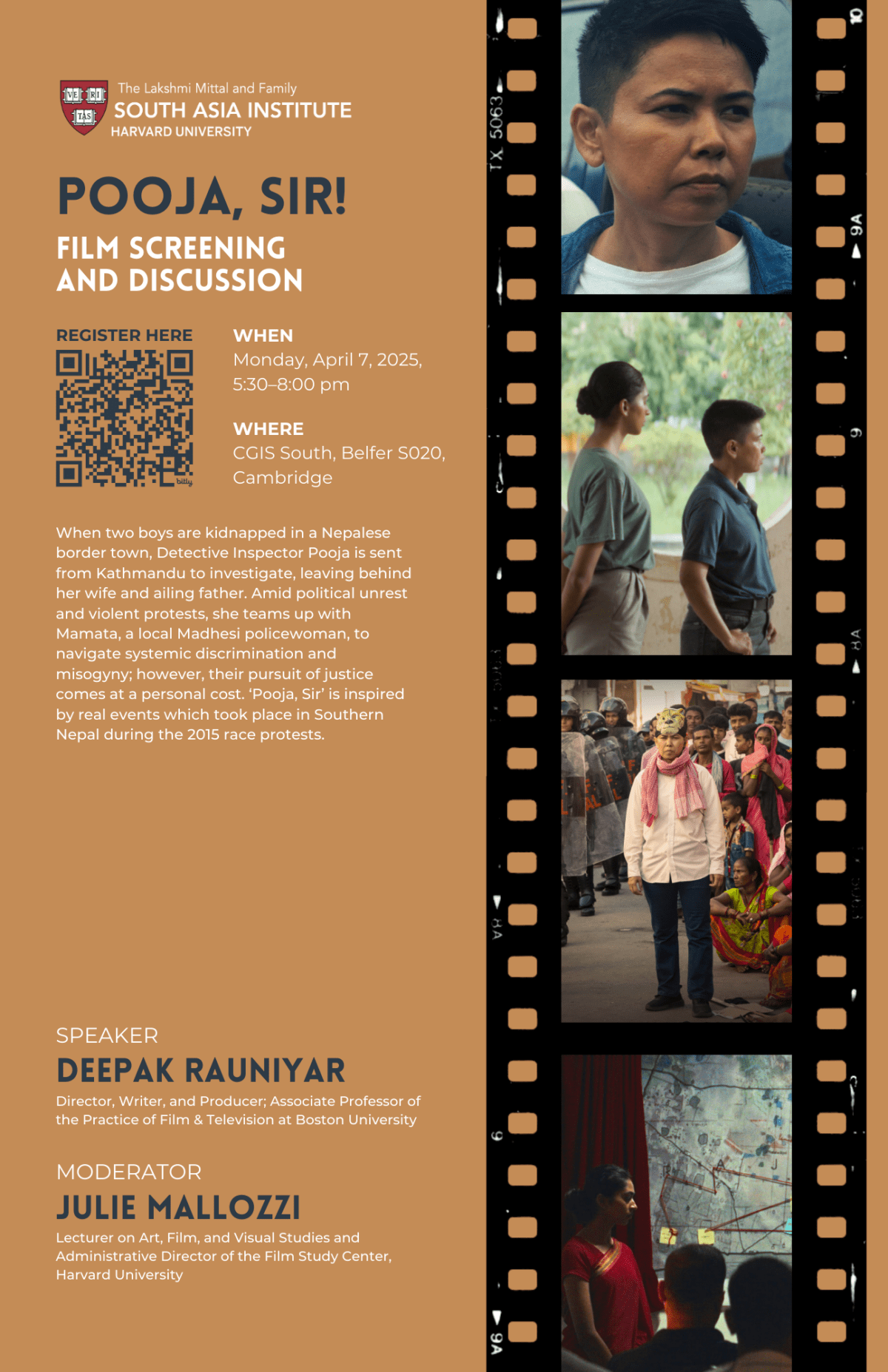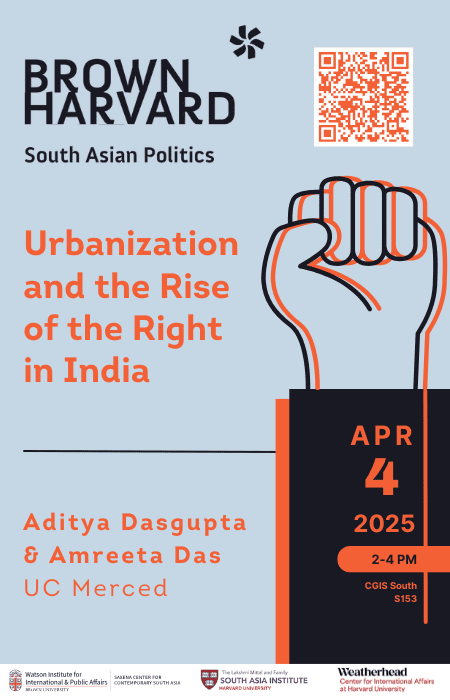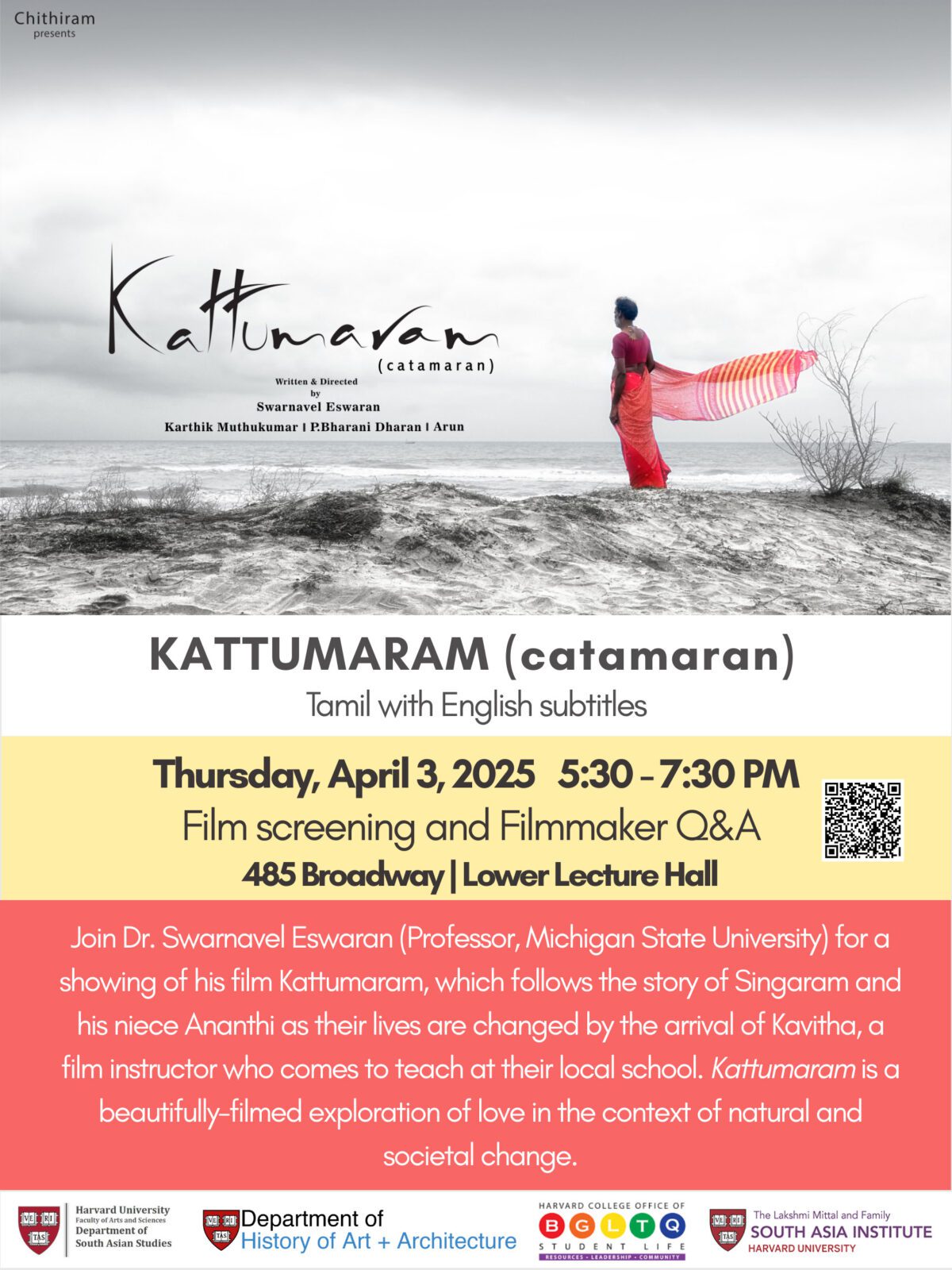WHEN
Fri, Jun 13, 2025 from 05:00pm — 06:30pm, IST
Join us virtually for an informative session on Friday, June 13, 2025, to gain insights into the eligibility criteria, application process, and benefits of the Fellowship. You’ll also have the opportunity to interact with current India Fellows and get responses to your questions.
More InfoWHEN
Fri, May 30, 2025 - Wed, Jun 25, 2025, ET
The HUM SAB EK traveling exhibition, curated by Dr. Satchit Balsari and Hiteshree Das GSD ’25, is opening on May 30 at the International Labor Organization Headquarters in Geneva, Switzerland. The multimedia exhibition is open to ILO staff and the nearly 5,000 delegates from 187 countries attending the International Labor Conference next week. Its presence at this location is of particular salience to members of the Self Employed Women’s Association (SEWA), whose stories of reliance and nurturance it captures, and to workers worldwide.
More InfoWHEN
Fri, May 9, 2025 at 04:30pm, ET — Sat, May 10, 2025 at 03:00pm, ET
VENUE
Main Theater, Hopkins Bloomberg Center
HUM SAB EK (We Are One) will stop in Washington, DC, for a panel and curatorial tours. It will be the fifth in a continuing series of discussions across academic institutions, international development organizations, and public and private sectors, examining alternatives to our current future.
More InfoWHEN
Thu, Apr 17, 2025 from 06:30pm — 08:30pm, ET
Please join us for a special Harish C. Mahindra evening featuring Tarun Khanna, Mittal Institute Faculty Director; William C. Kirby, former Fairbank Center Director; and Arthur Kleinman, former Asia Center Director. They will discuss the Mittal Institute’s 15-year journey to increase Harvard’s presence in Asia. The discussion will be followed by a reception.
More InfoWHEN
Mon, Apr 14, 2025 from 05:30pm — 07:00pm, ET
Please join us for a public lecture by the Mittal Institute’s second Distinguished Artist Fellow, Naiza Khan, a highly acclaimed visual artist from Pakistan.
More InfoWHEN
Wed, Apr 9, 2025 at 12:00pm, ET
Join us for a seminar with Muhammad Ayaz, Mittal Institute Syed Babar Ali Fellow Spring 2025! He will present his research on global value chains with a focus on Pakistan’s garment industry
More InfoWHEN
Mon, Apr 7, 2025 from 05:30pm — 08:00pm, ET
Join us for a film screening and discussion with director Deepak Rauniyar, moderated by Julie Malozzi, Lecturer on Art, Film, and Visual Studies and Administrative Director of the Film Study Center, Harvard University.
More InfoWHEN
Fri, Apr 4, 2025 from 02:00pm — 04:00pm, ET
Please join us for a seminar on South Asian politics with Aditya Dasgupta, Assistant Professor of Political Science, and Amreeta Das, PhD candidate in Political Science at the University of California, Merced.
More InfoWHEN
Thu, Apr 3, 2025 from 05:30pm — 07:30pm, ET
VENUE
Cambridge – 485 Broadway, Lower Lecture Hall
Join Dr. Swarnavel Eswaran (Professor, Department of English and the School of Journalism, Michigan State University) for a showing of his film Kattumaram, followed by a 30-minute Q&A.
More Info